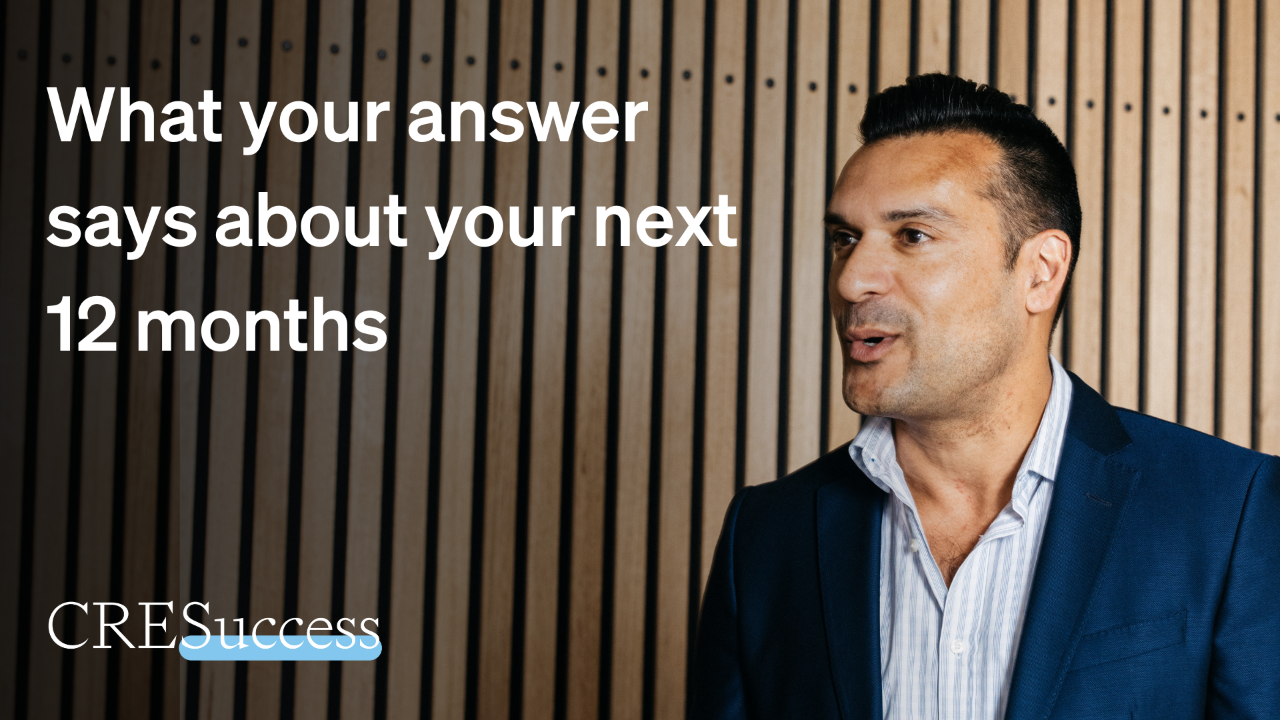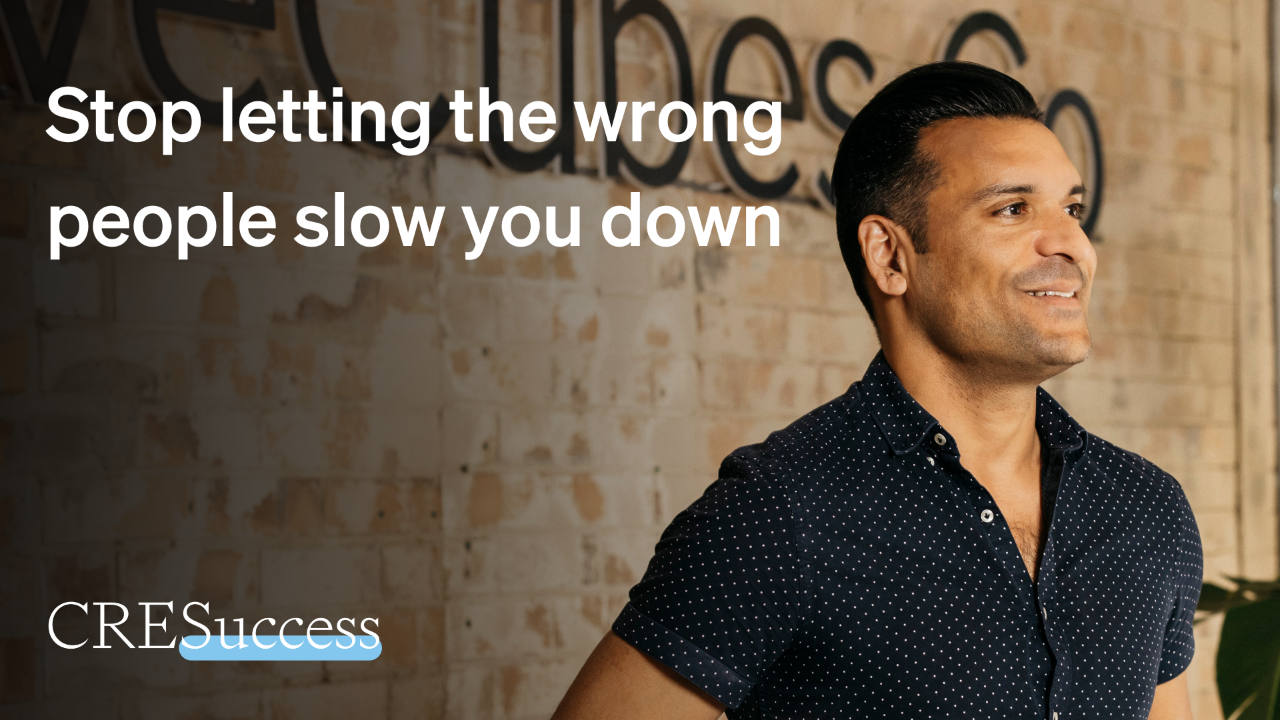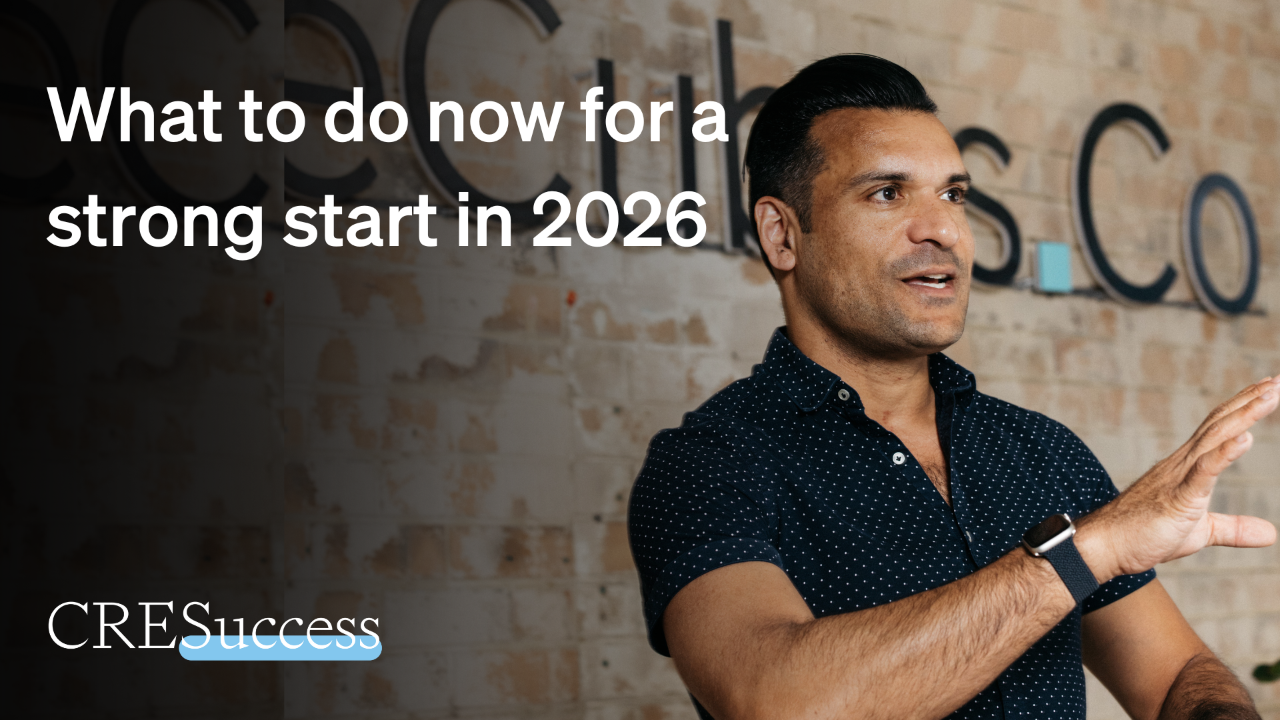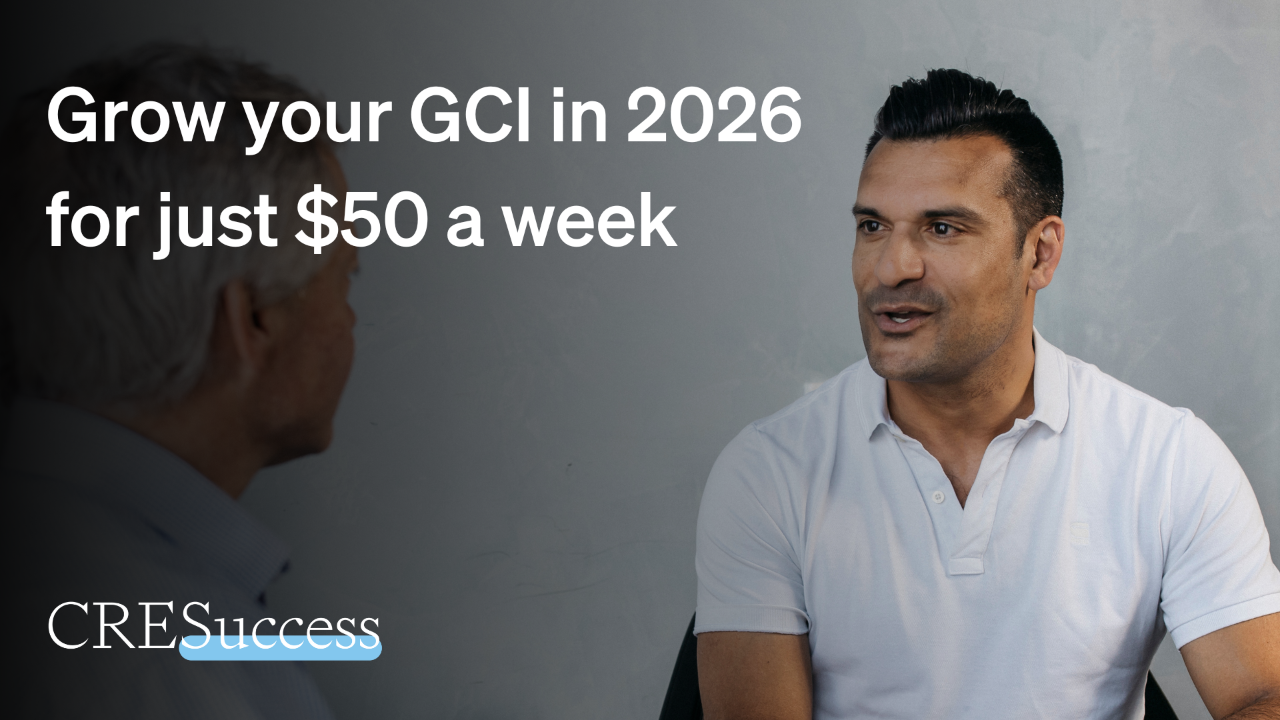Surprising business lessons from my recent stay in hospital
Oct 16, 2024
You wouldn’t think there’s much in common between running a hospital and working in commercial real estate, would you?
Well, during my recent stay in hospital, I was surprised to notice several principles in action that can be applied directly to our industry.
First, the importance of culture.
The hospital staff treated me—and each other—with genuine kindness.
It wasn’t just about patient care; it was about the culture they had built in their workplace.
Imagine if your team was always this positive and supportive.
It would transform not only client experiences but also how people feel about coming to work each day.
Second, the need for systems.
Every process at the hospital was followed to a tee.
Pain meds, patient checks and presumably the surgery while I was under—it was all done with precision, using proven procedures.
Are your systems clearly documented and consistently followed?
If not, there’s room to improve.
Finally, managing client expectations.
The hospital team was upfront and even exceeded my expectations with timelines, care levels and the quality of food.
How well do you manage your clients' expectations?
Keeping promises—and even over-delivering—builds trust and satisfaction.
These three areas—culture, systems, and managing client expectations—are key to running a more successful and efficient business.
Want to know more about what hospitals can teach to us in commercial real estate?
Listen to episode 194 of Commercial Real Estate Leadership for the prescription — no invasive surgery required!
P.S. And if you’re wondering, the operation went according to plan and my recovery is progressing well, thank you. 😊
Transcript:
At first glance, running a hospital and running a commercial real estate business, well, they're completely different.
But from my time in hospital, I realized that there are actually some lessons that we could take from the way that hospitals do things in terms of the culture that they have, in terms of the systems that they follow, and in terms of how they deal with their patients or clients that we can adapt and adopt in commercial real estate.
Let's discuss.
Hello, welcome to episode 194 of Commercial Real Estate Leadership. I'm your host, Darren Krakowiak.
I'm here to help you get the right people in your team serving ideal clients inside a business that just works.
If you're a commercial real estate principal, you are in the right place.
And we've got a whole back catalog of episodes available for you to listen to at any time for free.
You can download the back catalog on your favorite podcast player.
Well, back in episode 192 I told you that I was going in for surgery. And then in episode 193 I didn't give you an update because I decided to pre-record one more episode because I wasn't sure the condition that I would be in to be recording podcast episodes immediately after being released.
Probably a good thing I did that because I probably wouldn't have wanted to record one last week, but certainly now I'm well on the way to recovery and feeling a lot better.
So, thank you to the listeners who texted me to say, “Hey, I hope your recovery is going well.”
I did appreciate that. Well, the update is, is that all is well and recovery is underway.
And in terms of what I wanted to share with you about my experience in hospital, it was and I couldn't help but notice some of these things as they were happening.
Just what a great job they were doing and how there were potentially some learnings for us in commercial real estate in terms of the way that hospitals are operated and the way that they get stuff done.
So, the first thing that I noticed and this was really obvious to me as I was in that area, I guess, pre-operation, pre-going into the operating theater where they've got the people who are about to get operated on, they're sitting there waiting to be operated on.
And I guess it stands to reason that the staff there are going to be particularly nice to you because people are probably feeling a little bit nervous and anxious about what's about to happen.
But it didn't seem put on for that specific scenario because I noticed that actually that was how generally they were and also, they were like that to each other.
So, they had a really like great vibe, super nice.
And it got me thinking, can you imagine if we took care of our clients, like they were about to go into surgery, how much better the interactions our clients would have with us if we treated them like that?
Now, I don't know if we need to be that nice to our clients all the time.
But certainly, if we elevate the level of client service and also the culture that we have, I think that's going to result in a positive experience for our clients.
So, the first thing I noticed was just how super nice the people were in there and how it didn't seem fake. How that wasn't just how they were dealing with me in a certain situation.
It was the nurses, the orderlies, the doctors and the way that they were interacting seemed very positive, it seemed like the type of place that you'd be happy to come to work at each day because of the way that the people were with each other.
So that was the first thing.
The second thing I noticed was how they followed their systems religiously and how they handled the process very well.
And they had systems in place that were there to check for mistakes and to make sure that things were done correctly.
So, I'll give you one example.
They were giving me painkillers after the surgery. And every time they gave me a pain killer, there was this process that they would go through.
There would be two people in the room and one of them would look at my wrist to see the hospital tag and the other one would ask me to say my name and my date of birth.
And then they would repeat this number, which I think was my, they called it a secret code, which I think was just my hospital ID number and then they would administer the medicine.
And that was the process of doing that.
And I think that if we don't have processes that are documented that are simple and that are followed, then we're not always going to reach those levels of customer service and that level of efficiency and professionalism.
So, following the processes is having them in place and following them. And following them to a T each time was one of the takeaways that I have from being in hospital, that we can do better in commercial real estate.
And the third thing that they did really well, I felt was manage my expectations.
So, the operation actually happened earlier than they said it would.
So, when they had me in that pre-operating area early, I thought, “Oh, I'm going to be sitting here for ages.” But no, they actually got me in at a reasonable time.
The discharge date was before they actually had promised.
They made it really clear about how you order food. When my wife and daughter came to visit, we ordered more food and it was completely fine.
So, I quite liked those elements of it that everything that they said would happen did happen.
And in fact, it happened sooner or better than they had promised.
Now the aftercare was maybe a little bit more lacks than I was expecting in terms of like when the next appointment was and checking in with you.
But that's probably more on my surgeon and his team than it is on the hospital.
And maybe that's also just my expectations about this being something that is relatively routine for them. And that happens all the time where it's relatively new to me.
And certainly, when I did ask questions and when I had something that I needed a refill on my painkiller prescription, they were there to support me through that process even though there was a couple of hiccups along the way.
So, what is the lesson that we can take in commercial real estate?
It's not that we should start treating everyone like they're about to go in to have an operation.
But I think it's about looking for experiences that you have in other contexts and then relaying back those experiences to your team with lessons that you can share and that they can take on board.
And remember back in episode 187, I talked about the importance of sharing more with your team.
And this would be an example of sharing what's going on in your life, but also doing it in a way which provides some takeaways which can help your people do their job better and help your business perform better as well.
So, back to what the three things were, it was about the culture and it was about them being super nice.
And that got me thinking about when I dropped my car off the service last month and I had to pick it up at five o'clock and I was didn't get out of there until 5:35.
And the reason was because the person who was allocated to me as my customer service representative for the day had a difficult customer before and it took them like half an hour just to hand the car back to them.
And it meant that I just had to wait even though there were other people there who could have served me because that's their process.
And I think that I wasn't the best version of myself because I was getting a little bit frustrated because they weren't validating the way that I was, I guess being ignored. And it didn't seem that important to them.
Whereas if they had been nice about it and if they'd been apologetic about it, then probably I would have been more accepting of the fact that I wasn't able to get served as quickly as I would like.
And when it comes to the way people interact with each other, and I was talking before about the nurses and the orderlies and the doctors, all being really genuine in their culture, in the way that they deal with each other and that reflecting well in the culture.
I think as a leader, we've got to ask ourselves, are we doing everything that we can to create that kind of culture where people are interacting in a positive way?
And then that also has a positive impact on the way that clients experience dealing with the business.
So that's a little bit about culture and being nice to clients.
The next thing was about systems. And a question I've got for you is, are your systems and processes clear? Are they followed consistently?
And are they designed to minimize mistakes for the benefit of the client or are they just designed to minimize damage to the business or as an ass covering exercise for you?
So, our processes remember they need to be documented, they need to be simplified so someone can pick them up and run with them if they are competent and capable of doing that job and they need to be followed.
So, if you've got systems in place that aren't being followed, then there's the gap for you.
If you don't have enough systems in place so people know what they should be doing, then there's the area that you can focus on.
And the third, I guess part of this was around expectations management.
And I mentioned that they did a really good job of managing my expectations.
And this is an easy one I think for us to do better than most of our competitors at because we just need to let people know what is next and keep our word or do better than we had promised.
So, we want to communicate transparently. And also in a timely way, even when the news isn't that great because that's better than leaving the person wondering.
And when it comes to aftercare, and I mentioned maybe that was because of my expectations not being correct.
Well, I think even when a transaction stops being your responsibility, but there are still certain steps that need to be complete in order for the overall deal to be closed, you've got the opportunity to support your client through that part of the process, which perhaps isn't your direct responsibility, but just to make sure that their experience as a client is as positive as it as it can be.
So, making sure that and that could be even just, you know what at this stage, you might notice that it slows down or it might take some time for this person to get back to you.
I just want you to be aware of that and let me know if you've got any trouble.
So, I think it's around setting expectations but also making sure that once someone is released from your care that you don't just forget about them.
I understand in a hospital they've got more patients coming in.
But in a commercial real estate context, I think we can probably follow up and make sure that the next stages or that what's happened next is still going well and that will leave a positive impression with your clients.
So, I'll leave you with this thought.
I know that we're not actually performing surgery in commercial real estate. So, our clients perhaps don't expect that level of care and attention.
But you've got the opportunity to decide how much care and attention that you want to apply in your business, or at least you can decide to adopt some of the principles.
And I think that when we're open to adopting principles, including ones that at first don't seem that analogous like a hospital versus a commercial real estate business.
When we actually are open to taking some of the best practice and learnings from those experiences, that's how we get better at what we do.
That is our episode for today. Thanks so much for listening and I will speak to you soon.








